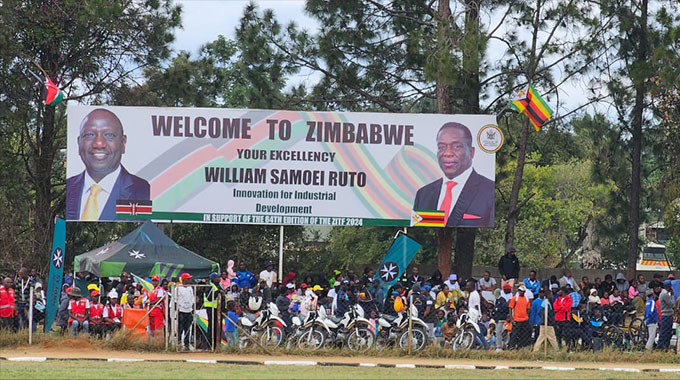Rhodesian legal system a raw deal for the black majority

Mashudu Netsianda, Senior Reporter
THE Rhodesian legal system and its statutes including their application in terms of the rule of law and human rights presented a raw deal for the black majority.
Access to justice and practising law for blacks in Rhodesia was equally tough.
The situation was influenced by racial attitudes and white supremacy.
Despite holding requisite qualifications, there was no black allowed to practice as an attorney. Judicial decisions were biased against blacks and violated the concepts of the rule of law and human rights.
There was systematic enforcement of racial segregation of all the peoples of Rhodesia based on the discriminatory laws, which favoured whites against blacks.
When the country attained its independence from the colonial Rhodesian regime in 1980, the day marked an end to racial segregation, social injustice and a discriminatory legal system that promoted white supremacy.
In interviews, some of the prominent lawyers who operated in a hostile colonial environment said after Independence, the country’s judiciary landscape changed for the better compared to what it was during Rhodesian times.
Advocate Honour Piniel Mkushi, one of the veteran lawyers who represented nationalists during the liberation struggle, said the Rhodesian legal system promoted white supremacy.
“During the Rhodesian era, there was no black attorney in practice, no black judge in the High Court or any black prosecutors at that time because the situation was really badly influenced by the racial attitudes and white supremacy,” he said.
Adv Mkushi said the law was a closed profession, which was difficult to penetrate as blacks encountered many hurdles and difficult situations due to general attitudes slanted against black legal practitioners.
He said it was a struggle for blacks to practice as lawyers in Rhodesia despite being holders of law degrees.
“I could not get employment as an article clerk in order to join what was known as the bar at the time because the legal profession was kind of a reserve for the minority white community as it was a completely sealed profession. A lot of us who were trying to get into the profession found it almost impossible to break until I managed to get articles of flagship with one of the legal firms,” he said.
Adv Mkushi said it was only after he got a job as an article clerk at one of the law firms that it became easier for him to work with other qualified law graduates and be able to carry out the work of a legal practitioner.
“We are talking about a situation where there was a single article clerk in the whole country until people like Steven Mapfava, Patrick Chinamasa and other black lawyers eventually managed to join,” he said
Adv Mkushi said during the Rhodesian era, the laws were crafted in such a way that it was difficult for a black person to establish law firms.
“We now have a proliferation of black law firms throughout the country and to some extent, we now have an oversupply of lawyers practising throughout Zimbabwe. Independent Zimbabwe has opened up the profession generally to law graduates,” he said.
“In terms of the law, we are also looking at a situation where 41 years ago, we were operating under the repressive laws such as the Law-and-Order Maintenance Act and a number of other instruments used by the Rhodesian regime to clobber any political sentiments and to suppress any elements of discord within the society.”
Adv Mkushi said independence brought in new laws that are democratic, progressive and represent the interests of the generality of society.
“Those repressive laws are gone and we now have different laws in operation, which are a lot more transparent, more democratic and allowing space for people to air their views and go to court and be defended adequately. In fact, there are many laws which have changed and reflect on human rights issues and these laws are progressive as they represent the interests of the generality of society, personal rights interests and gender issues, which progressed very well since independence,” he said.
Retired Bulawayo High Court judge Justice Lawrence Kamocha, who worked as a court interpreter during the Rhodesian era before he became part of the first crop of black magistrates when Zimbabwe attained independence, said some of the laws enacted during the colonial era were meant to victimise blacks.
“I was a court interpreter during Rhodesia and that time as blacks we were not getting the same treatment as our white counterparts who were interpreters and all magistrates were white. It was only white interpreters who had offices and blacks didn’t have offices to operate from save to sit in court,” he said.
Justice Kamocha said current laws have been changed to suit current situations unlike in Rhodesia when the laws were discriminatory against blacks.
“There are certain laws, such as Loma, which have completely been repealed as they were enacted solely to victimise blacks. There were certain laws, which discriminated blacks and, in our time, blacks were not allowed to live in the eastern suburbs,” he said.
“In my view, the judicial system has tremendously changed. We now have our own people trying their own people and you know if you are being tried by your peers, they will understand you better.”
Justice Kamocha said during the Rhodesian era there were bars in the central business district reserved for blacks with a time limit.
“You couldn’t drink after 5PM and during weekends. You could only drink up to 1PM after which you go and drink at what were then known as black townships where we were allowed to drink for as long as we wanted,” he said.
Bulawayo lawyer Advocate Kucaca Phulu said during the Rhodesian era, there was white monopoly of skills which restricted training and education to whites.
“We had laws that mandated that black people were inferior to white people. In fact, there was a ceiling in terms of what black people could do in their own country. This was also combined with control over bargaining power through trade union legislation which discriminated against the organisation of black workers,” he said.
“There was so much racial segregation in terms of where blacks could live, farm or own property. Voting and land were the two main issues including repressive pieces of legislation such as Loma, which was used to prevent people from participating in political organisations of their choice.” — @mashnets










Comments